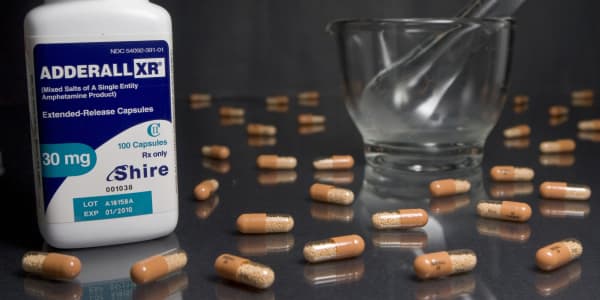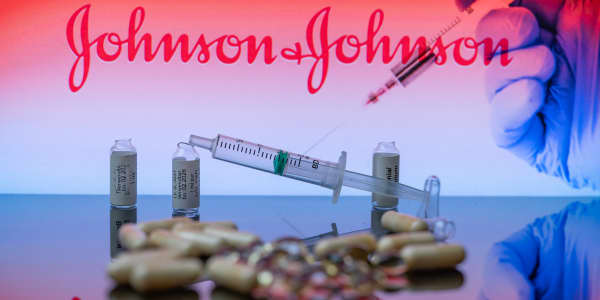
Regeneron Pharmaceuticals CEO Leonard Schleifer is hopeful he can bargain with pharmacy benefit managers to lower the cost of its more than $14,000-per-year cholesterol drug for patients.
Earlier this month, he said the company is willing to lower the price. However, he said he wants to force the payers to make access straightforward for the patients who need it.
When asked Wednesday if he is now striking any deals, Schleifer said, "We're working hard at that and I'm optimistic on how that's going to work out."
Recent results from a highly anticipated long-term clinical trial found that the cholesterol drug Praluent significantly reduced major adverse heart events by 24 percent. It also led to fewer deaths among high-risk patients.
The study included nearly 19,000 patients who were injected with the drug or a placebo every two weeks. Some patients switched to a higher dose if LDL cholesterol levels remained at certain levels.
However, when it comes to the industry's drug pricing, there are larger "structural issues" that have to be dealt with, Schleifer said on "Power Lunch" from the CNBC Healthy Returns conference.
While drug companies have to do their part by coming up with fair prices, they also need incentives, he contended.
In fact, the U.S. Constitution grants the rights for companies to get patents.
"Our founding fathers said we're going to let you benefit from your inventions. If we take away that incentive, we're just going to be like Russia," Schleifer said. "We're not going to develop any drugs. We need to be able to have that incentive."
— CNBC's Berkeley Lovelace contributed to this report.






